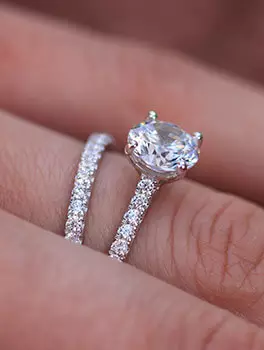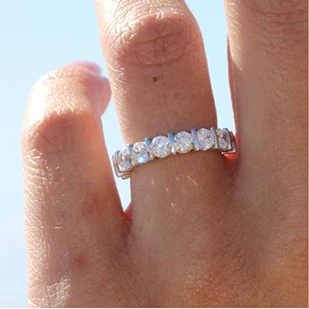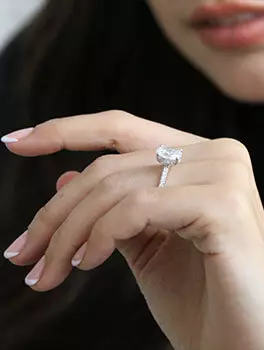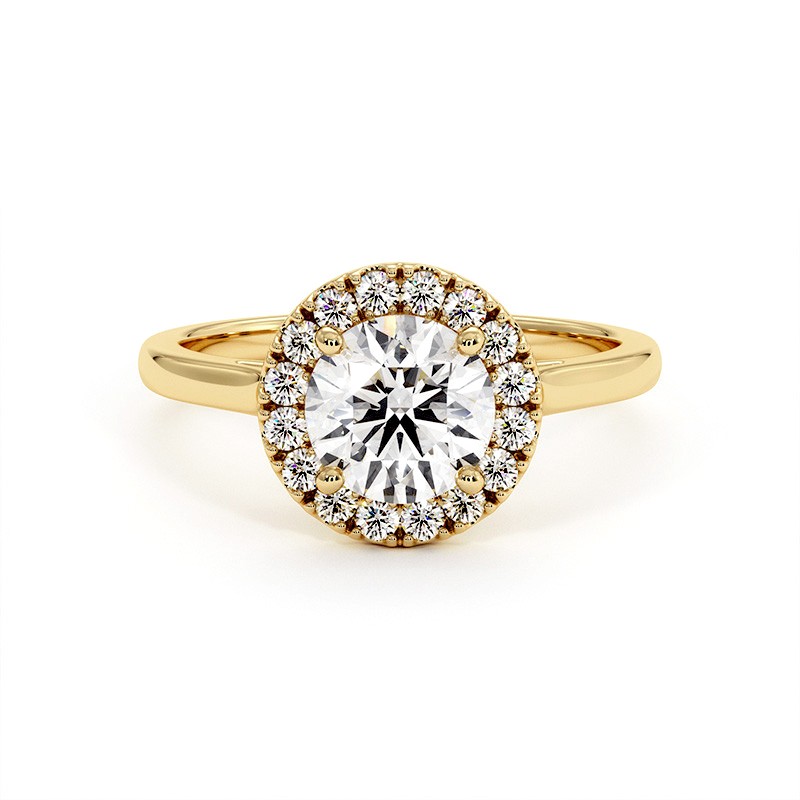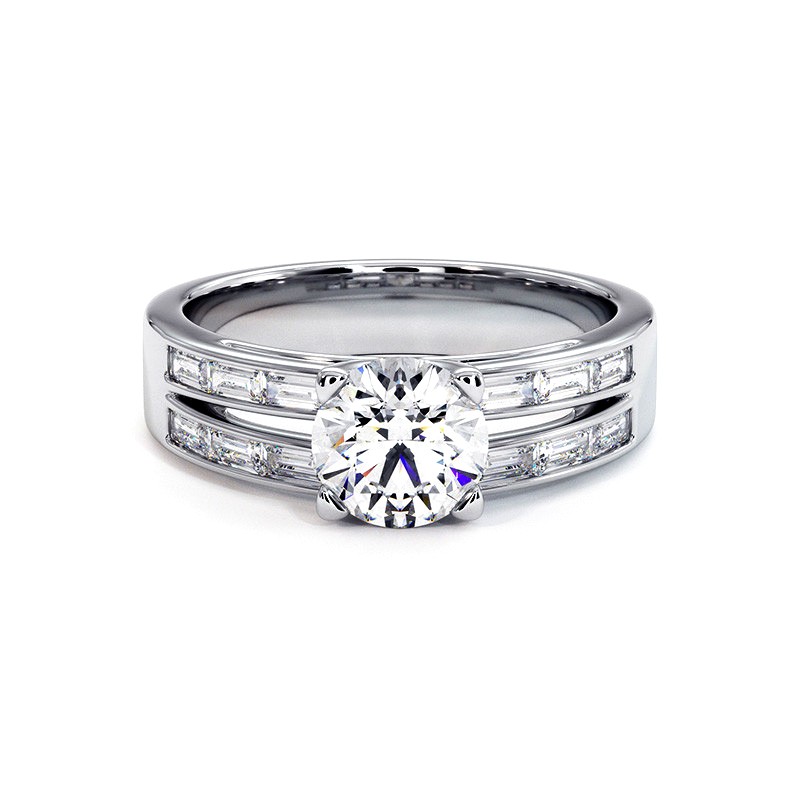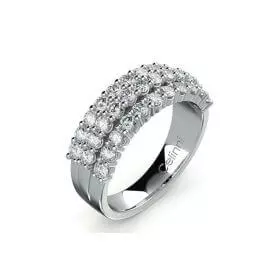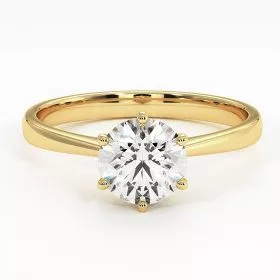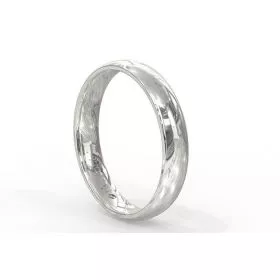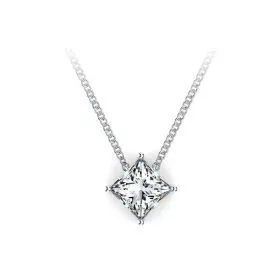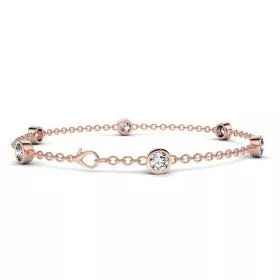How to organize a Muslim wedding?
 ,
Jewelry News
,
Jewelry News


Organizing a Muslim wedding is not limited to a simple ceremony: it is based on essential pillars such as the khotba (marriage proposal), the henna ceremony, and the walima (wedding banquet). Each step symbolizes a deep and spiritual commitment. If you want to understand in detail the traditions and rules of the marriage In Islam, to celebrate your union in accordance with Muslim values, you are in the right place. Discover our complete guide to organizing an unforgettable oriental wedding, combining spirituality and elegance.
Definition of hlel: what is religious marriage in Islam ?
The marriage in Islam, also called engagement, marriage or Fatiha (a chapter in the Quran), is a sacred union that commits a man and a woman according to Muslim religious principles. It is a moral and spiritual contract, recognized before God and the community, but without legal value in France.
In accordance with French law, A religious marriage can only be celebrated after a civil marriage., the spouses must present an official certificate before the ceremony, which is usually led by an imam.
What is the difference between a Muslim wedding and an Oriental wedding ?
Although often confused, the Muslim marriage and the oriental wedding refer to two distinct aspects of the union.
- The Muslim marriage (hlel) relies solely on the religious principles of Islam. It involves the respect of several essential conditions, such as the presence of witnesses, the acceptance of the spouses, and the dowry (mahr).
- Oriental wedding, for his part, incorporates the traditions and customs specific to Arab, Berber or Turkish countries. It is not limited to the religious aspect, but also includes festive rituals such as the henna ceremony, wearing traditional outfits, and festivities enlivened by cultural songs and dances.
In France, Oriental wedding is also a very popular theme., inspiring many couples in planning their union, whether they are Muslim or not.
Who can perform a "hlel" Muslim marriage ?
Islam strictly regulates religious unions, defining the conditions that allow couples to marry according to the precepts of the Quran.
- A Muslim man and a Muslim woman : This union is the most common and requires no prior conversion.
- A Muslim man with a Christian or Jewish woman Islam allows mixed marriage between a Muslim man and a woman belonging to the "People of the Book" (Christian or Jewish). However, the latter must not be atheist or polytheistic. In this context, Christian-Muslim marriage is possible without the obligation of conversion for the woman, but the children from the union must be raised in the Islamic faith.
- A Muslim woman and a non-Muslim man : This union is not permitted in Islam, unless the man decides to convert to Islam after serious religious learning. He will have to undergo an initiation into the Muslim faith and obtain a conversion certificate before the wedding ceremony can take place.
As with any union, certain conditions must be respected:
- The future spouses must not have too close family ties (prohibition of consanguineous marriages).
- It is forbidden to propose to a woman already promised to another Muslim man or to outbid on a dowry already offered.
- A marriage cannot be contracted if one of the future spouses is still in the process of an unpronounced divorce.
- In case of divorce, the woman must observe a widowhood period of three months before she can remarry.
- If the future bride is pregnant from a previous union, her future husband will have to wait until the birth before formalizing their marriage.
- In the event of the death of a previous spouse, a mourning period of 4 months and 10 days is imposed before a new marriage.
Definition of hlel: what is religious marriage in Islam ?
The marriage in Islam, also called engagement, marriage or Fatiha (a chapter in the Quran), is a sacred union that commits a man and a woman according to Muslim religious principles. It is a moral and spiritual contract, recognized before God and the community, but without legal value in France.
In accordance with French law, A religious marriage can only be celebrated after a civil marriage., the spouses must present an official certificate before the ceremony, which is usually led by an imam.
What is the difference between a Muslim wedding and an Oriental wedding ?
Although often confused, the Muslim marriage and the oriental wedding refer to two distinct aspects of the union.
- The Muslim marriage (hlel) relies solely on the religious principles of Islam. It involves the respect of several essential conditions, such as the presence of witnesses, the acceptance of the spouses, and the dowry (mahr).
- Oriental wedding, for his part, incorporates the traditions and customs specific to Arab, Berber or Turkish countries. It is not limited to the religious aspect, but also includes festive rituals such as the henna ceremony, wearing traditional outfits, and festivities enlivened by cultural songs and dances.
In France, Oriental wedding is also a very popular theme., inspiring many couples in planning their union, whether they are Muslim or not.
Who can perform a "hlel" Muslim marriage ?
Islam strictly regulates religious unions, defining the conditions that allow couples to marry according to the precepts of the Quran.
- A Muslim man and a Muslim woman : This union is the most common and requires no prior conversion.
- A Muslim man with a Christian or Jewish woman Islam allows mixed marriage between a Muslim man and a woman belonging to the "People of the Book" (Christian or Jewish). However, the latter must not be atheist or polytheistic. In this context, Christian-Muslim marriage is possible without the obligation of conversion for the woman, but the children from the union must be raised in the Islamic faith.
- A Muslim woman and a non-Muslim man : This union is not permitted in Islam, unless the man decides to convert to Islam after serious religious learning. He will have to undergo an initiation into the Muslim faith and obtain a conversion certificate before the wedding ceremony can take place.
As with any union, certain conditions must be respected:
- The future spouses must not have too close family ties (prohibition of consanguineous marriages).
- It is forbidden to propose to a woman already promised to another Muslim man or to outbid on a dowry already offered.
- A marriage cannot be contracted if one of the future spouses is still in the process of an unpronounced divorce.
- In case of divorce, the woman must observe a widowhood period of three months before she can remarry.
- If the future bride is pregnant from a previous union, her future husband will have to wait until the birth before formalizing their marriage.
- In the event of the death of a previous spouse, a mourning period of 4 months and 10 days is imposed before a new marriage.
The conditions of marriage in Islam: rules to follow
How to get married in Islam ?
For a Muslim marriage to be valid, it must meet four essential conditions:
- Mutual consent
- The presence of a guardian (wali)
- The presence of witnesses
- The payment of the dowry (mahr)
These rules are universal in Islam and are based on teachings from the Quran and hadiths. Even though some details may vary according to legal schools, these pillars remain unchangeable.
The consent
The Muslim marriage being primarily a contract, the consent of both spouses is essential. Islam insists on the woman's freedom of choice, who can accept or reject a marriage proposal.
During the ceremony, consent is expressed in front of witnesses and the bride's guardian. There should be no coercion or pressure.
The presence of the guardian (Wali)
The guardian plays a central role in Islamic marriage. For a woman, her wali is usually her father, her brother, or a male member of her close family. His role is to ensure that the union takes place under good conditions and in the bride's best interest.
If the father or male members of the family are absent, the imam of the community can take on this role. However, according to the Hanafi school, the presence of the guardian is not a strict obligation if the woman is mature and consents to the union.
The presence of witnesses
Two adult Muslim witnesses must be present to validate the religious marriage. Their presence ensures that the union is public and not secret. They must be of good morality and capable of attesting to the commitment of the spouses.
In some cases, a male witness can be replaced by two women.
The marriage dowry (Mahr)
The dowry, or "mahr", is a sum or property offered by the future husband to his wife as a sign of commitment and respect. Elle symbolises his financial responsibility and his duty to provide for his wife.
Elle it can be a sum of money, a material good or a symbolic gift. Its amount is set according to the financial capabilities of the husband and in consultation with the bride and her family. Once paid, elle belongs exclusively to the wife.
Finally, although religious marriage has a spiritual value, Muslim couples living in France can also formalize their union through a civil marriage, thus ensuring legal recognition of their commitment.
The organization of the Muslim wedding
The organization of a Muslim wedding relies on several stages similar to Western weddings, while respecting Islamic traditions. The future spouses must take into account several elements, including the budget, outfits, decoration and the course of the different ceremonies.
The budget of an oriental wedding
As with any wedding, the budget varies depending on the number of guests and the choices of the bride and groom. The main expenses include:
- The reception hall
- The caterer offering a halal menu
- The decoration of the room and tables
- Traditional and modern outfits
- The performance of the photographer and videographer
According to Islamic principles, marriage should remain sober and not lead to excessive expenses that the future spouses could not afford.
The Arabic wedding dress
The Muslim bride has the opportunity to wear several outfits throughout the festivities. Traditions vary according to regions and cultures, but here are the main stages of dress:
- During the marriage proposal (sermon) : A simple traditional dress, often a caftan or a discreet takchita.
- During the henna ceremony : A green caftan adorned with embroidery or a silk or velvet takchita, a symbol of prosperity.
- During the religious ceremony (nikah) : A white or pastel-colored dress, which could be a modern caftan or a more western outfit.
- During the reception : Several sumptuous dresses in various colors, with luxurious accessories.
The groom, for his part, can opt for a traditional outfit like the qamis or an elegant suit that matches the bride's outfit. Guests are also encouraged to wear traditional or modern clothes suitable for the event.
Oriental wedding decoration
The decoration of a Muslim wedding is often inspired by arabesque patterns and warm colors such as gold, red, and white. The essential elements include:
- Dimmed lights and candles for an intimate atmosphere
- Fresh flowers to beautify the room
- Carpets and cushions with oriental patterns
- An elegant staging of the newlyweds' throne
The proceedings of the halal marriage
A Muslim wedding is a sacred event that revolves around several ceremonies, punctuated by symbolic and festive moments. Traditionally, the celebration could last up to seven days, but today, elle It usually spans over three days. The program often includes the civil union, the henna ceremony, the religious wedding, and a large reception.
The wedding can be celebrated at any time of the year, although some periods are preferred according to Islamic recommendations, especially after Ramadan. In Muslim countries, ceremonies often take place on a Thursday or Friday, while in France, they are usually organized on the weekend to allow the largest number of guests to attend.
The khotba: the marriage proposal
The khotba is an essential stage of the Muslim marriage. Elle corresponds to the official request for the hand of the future bride. Traditionally, it is the future groom who initiates this process, but in some cultures, the request can also be made by the woman.
The suitor goes to the woman's parents' house, accompanied by his family, to ask for her legal guardian's (wali) permission. During this meeting, it is customary to offer gifts to the future bride, such as jewelry, pastries, perfumes, or even clothes. Once the request is accepted, the families celebrate this commitment with a friendly meal, while defining the terms of the marriage: dowry, date, location, and organization of the festivities.
In some cases, after the khotba, the bride and her relatives go to the hammam for a purification ceremony. This tradition symbolizes the transition to a new stage of life and includes body treatments such as a milk bath, the use of rhassoul (mineral clay) and black soap for exfoliation.
The henna ceremony

The henna ceremony is a tradition deeply rooted in Muslim and Oriental weddings. Reserved for women, elle symbolically marks the transition from fiancée to wife and brings blessing and protection against the evil eye.
According to customs, this ceremony can take place the day before the wedding or a few days before. Sometimes, elle The event is organized on the evening of the wedding, after the banquet. The henna is usually applied at the bride's family home by a professional, drawing refined patterns on her hands and feet. These patterns, rich in meaning, symbolize prosperity, fertility, and protection.
Female guests also participate in this ritual and can receive temporary henna tattoos. This evening is often enlivened by traditional songs and dances, enhancing the warm and festive atmosphere. In some families, men also have their own henna ceremony, although this is less common.
To immortalize these precious moments, it is recommended to hire an experienced photographer in oriental weddings, in order to capture the beauty of henna designs and the magical atmosphere of the ceremony.
Can we get married in Islam without an imam ?
A Muslim marriage can be celebrated without the presence of an imam. Any Muslim person with a deep knowledge of Islamic rites can officiate the union, provided that the bride's guardian is present and gives his consent.
In most cases, couples however prefer the presence of an imam or a qadi to oversee the ceremony and recite the ritual invocations. Contrary to some beliefs, it is not mandatory to pay an imam to officiate a wedding, as he already receives a salary from his mosque. However, a donation as a token of appreciation can be considered.
The religious ceremony
After the civil celebration at the town hall, the couple usually proceeds to the religious ceremony. With an average duration of 30 minutes, this ceremony can take place at the mosque, at the family home, or even in a reception hall, as long as the Islamic conditions of marriage are respected.
The union begins with praises addressed to Allah, followed by the recitation of verses from the Quran about marriage and love. The officiant then asks the bride's guardian if he agrees to give his daughter in marriage, then questions the future groom about his consent. Each answer is accompanied by the mention of the dowry agreed upon between the two families.
Although the Quran does not prescribe the exchange of rings, this practice has become common in many Muslim weddings. However, it is forbidden for Muslim men to wear gold wedding rings. Celinni offers elegant alternatives such as silver or platinum wedding rings, perfectly suited to Islamic traditions.
The religious ceremony concludes with invocations (duas) in favor of the newlyweds. As a form of celebration, it is common to announce the union through religious songs or traditional music, depending on the preferences of the families.
The reception evening
After the ceremony, let the festivities begin! The reception, also known as wedding feast, is a convivial banquet where family and friends gather to celebrate the union of the newlyweds. Faithful to Islamic values, this reception consists of a halal meal, often inspired by oriental cuisine: tajines, mechoui, couscous or refined dishes accompanied by traditional pastries.
In some traditions, the newlyweds make a spectacular entrance on a golden palanquin, a practice known as amariya. They are then carried by their loved ones and placed on a beautifully decorated bridal throne.
According to family customs, men and women may be separated during meals, but this practice is tending to disappear in favor of a common celebration. The evening is punctuated by musical entertainment, traditional dances, and sometimes even light shows or fireworks.
Once the party is over, the newlyweds head to their new home, thus beginning their life together under the best auspices.
Why choose Celinni for your wedding rings and jewelry ?
The wedding is a unique moment that deserves exceptional jewelry. At Celinni, a diamond dealer since 1967, we assist future spouses in choosing their wedding rings and jewelry. Whether you are looking for a engagement ring Bespoke, a gold or platinum wedding ring respecting Islamic traditions, we offer you refined and timeless creations.
Our artisan jewelers design elegant and customizable pieces, perfect for sealing your commitment. Discover our exclusive collection of wedding bands and find the jewel that will enhance your union.
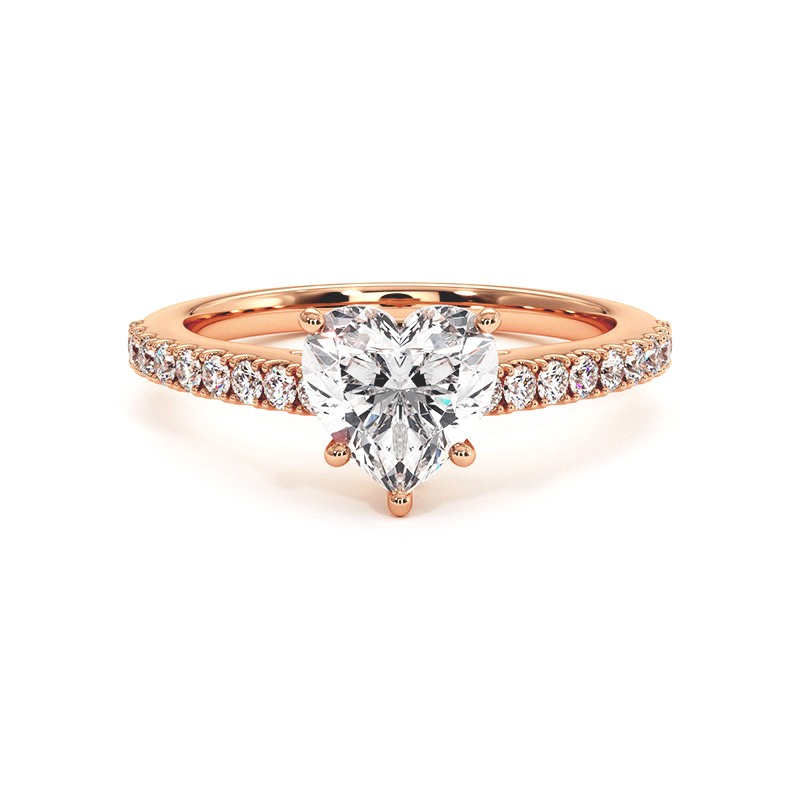

Diamond Heart Solitaire Elle
- -15%
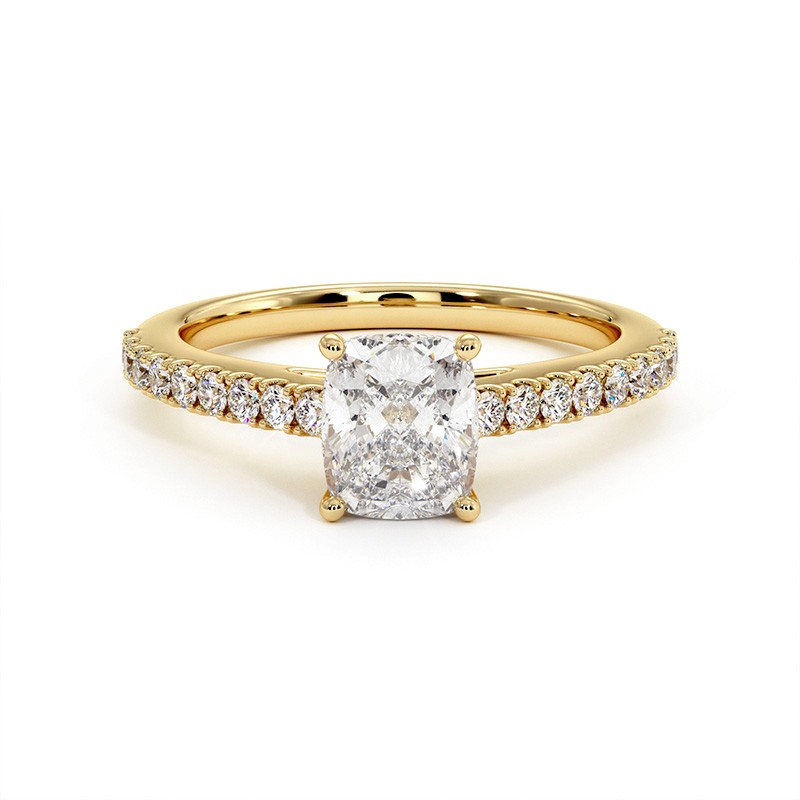

Cushion Diamond Solitaire Elle
- -15%
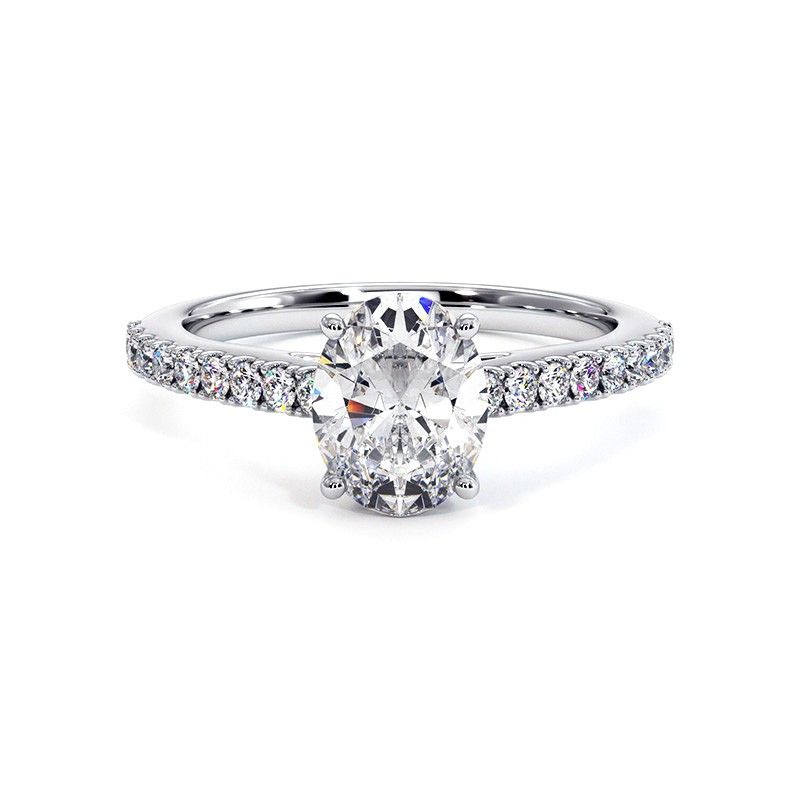

Oval Diamond Solitaire Elle
- -15%
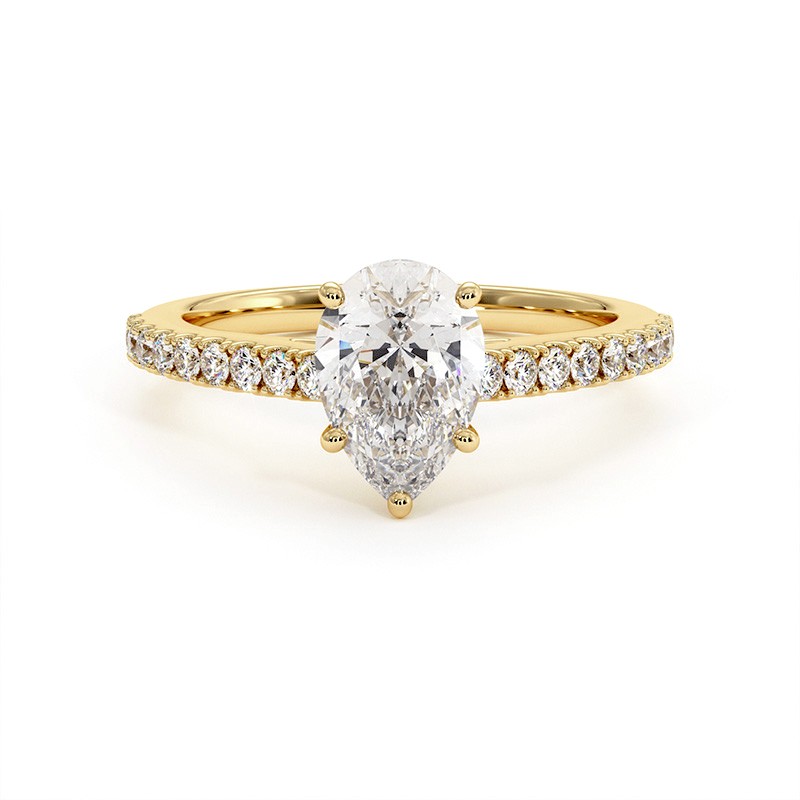

Pear Diamond Solitaire Elle
- -15%
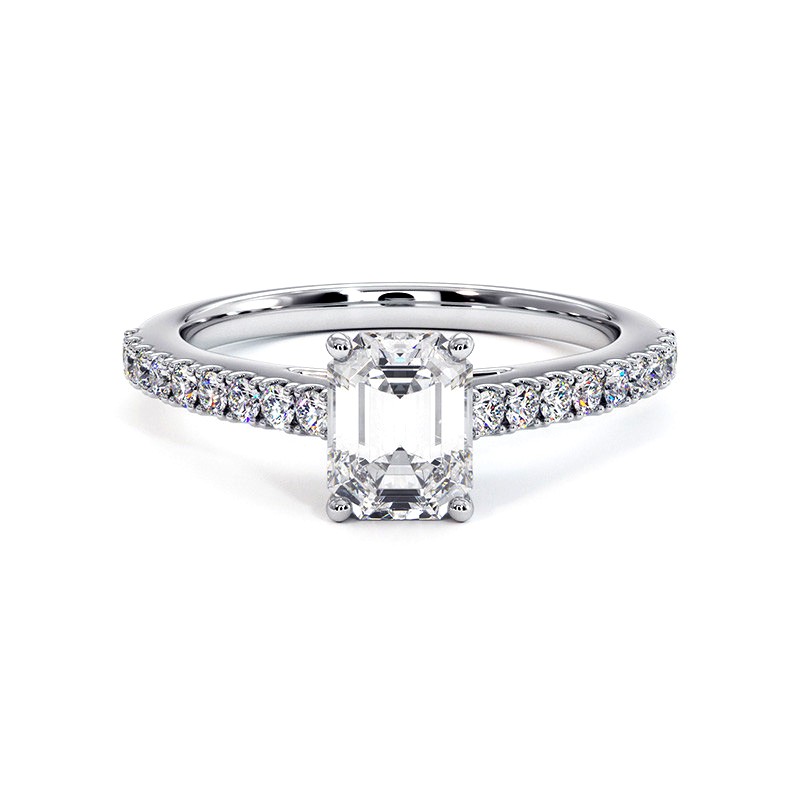

Solitaire Diamond Emerald Elle
- -15%
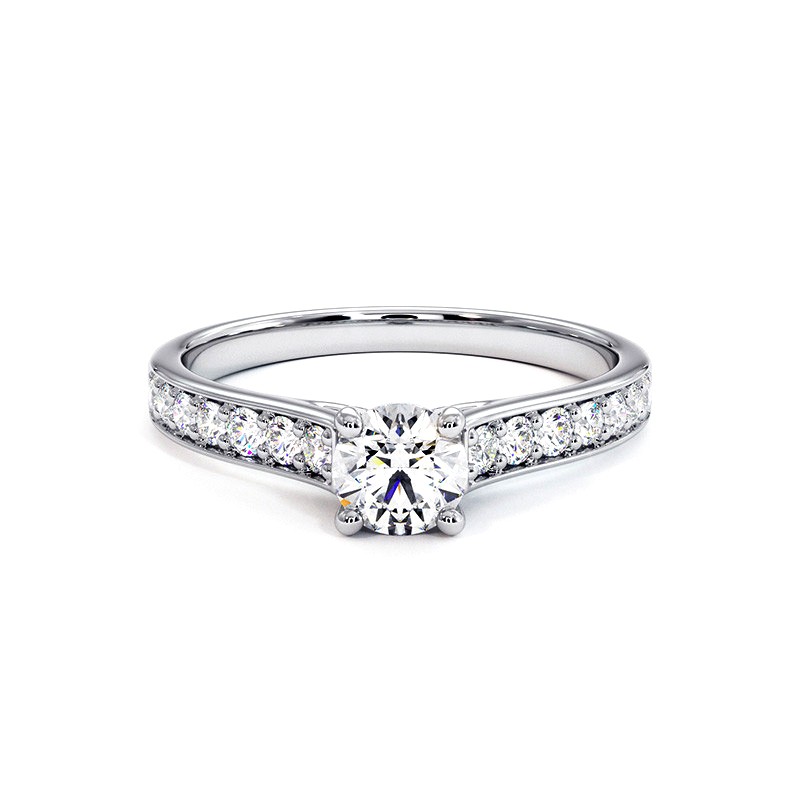

Diamond Solitaire Mon amour
- -15%
FAQ: Everything you need to know about organizing a Muslim wedding
- What are the essential steps to organize a Muslim wedding ?
A Muslim wedding follows several key stages: the khotba (marriage proposal), the setting of the dowry (mahr), the religious ceremony (nikah) and the walima (wedding banquet). Depending on cultural traditions, events such as the henna ceremony may also be organized. - What is the difference between a Muslim religious marriage and a civil marriage ?
The religious marriage (nikah) is a spiritually recognized union in Islam, but it has no legal value in France. The civil marriage, celebrated at the town hall, is the only one that offers legal rights and protections to the spouses. - Who can be a witness to a Muslim wedding ?
Two adult Muslim witnesses must be present to validate the marriage. They must be of good morality and attest that the union has taken place according to Islamic rules. - What jewelry to give at a Muslim wedding ?
The dowry (mahr) can include precious jewelry given to the bride. Gold, platinum or diamond wedding rings are also a strong symbol of commitment. At Celinni, we offer wedding rings andcustom-made engagement ringsTo enhance this unique moment.























